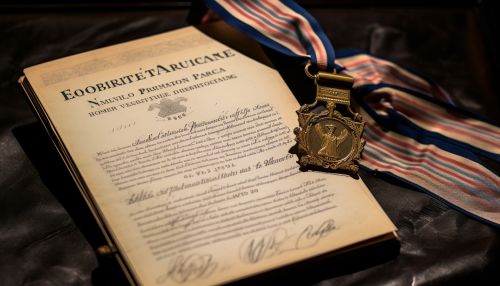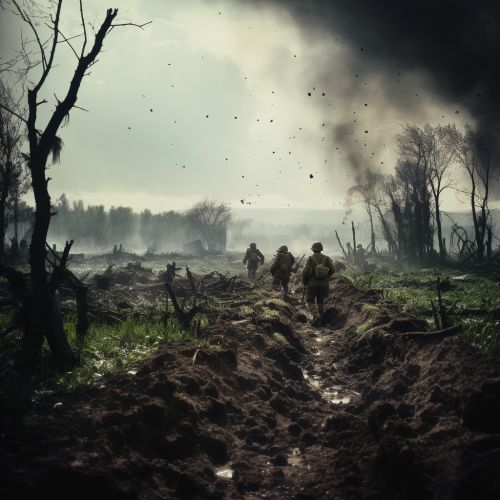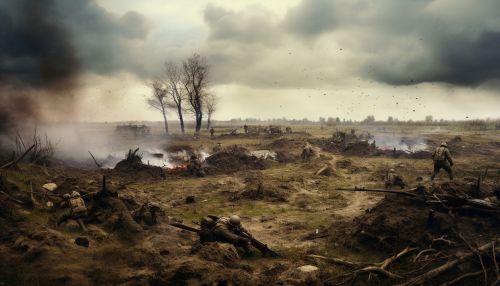Second World War
Origins
The Second World War, often referred to as World War II, was a global conflict that took place from 1939 to 1945. It was the most widespread war in history, involving more than 30 countries and resulting in over 70 million fatalities. The war was marked by significant events that shaped the course of the 20th century, including the Holocaust, the use of nuclear weapons, and the establishment of the United Nations.
The origins of the Second World War can be traced back to the aftermath of the First World War. The Treaty of Versailles, which ended the First World War, imposed heavy reparations and territorial losses on Germany. This led to economic instability and political unrest in Germany, creating conditions ripe for the rise of Adolf Hitler and the Nazi Party.


Rise of Fascism
In the 1930s, the world saw the rise of totalitarian regimes, notably in Germany, Italy, and Japan. These regimes, characterized by dictatorial power, forcible suppression of opposition, and strong regimentation of society and the economy, were driven by a political ideology known as fascism.
In Germany, Adolf Hitler and the Nazi Party rose to power in 1933. Hitler's aggressive foreign policy and expansionist ideology are often considered to be the primary causes of the start of the Second World War. He violated the Treaty of Versailles by remilitarizing the Rhineland and annexing Austria into the Third Reich in the Anschluss.
In Italy, Benito Mussolini and his National Fascist Party had been in power since 1922. Mussolini sought to create a New Roman Empire, and his invasion of Ethiopia in 1935 was condemned by the international community but did little to deter his ambitions.
In Japan, a series of military governments culminated in the militarist regime that led Japan into the Second World War. Japan's invasion of China in 1937, known as the Second Sino-Japanese War, was a significant precursor to the global conflict.
Course of the War
The Second World War is generally considered to have begun on 1 September 1939, with the German invasion of Poland, a breach of the Treaty of Versailles. Britain and France declared war on Germany two days later. The war was initially confined to Europe, but it spread to Asia, Africa, and the Pacific with the Japanese attack on Pearl Harbor in December 1941.
The war was marked by several significant military campaigns, including the Blitzkrieg, or "lightning war", tactics used by Germany in the invasion of Poland and France. The Battle of Britain was a significant early turning point in the war, marking the first major defeat of Germany's military forces.
On the Eastern Front, the Battle of Stalingrad marked a significant turning point in the war. It was one of the deadliest battles in history and is considered a significant defeat for Germany.
In the Pacific, the Battle of Midway was a decisive naval battle that marked a turning point in the war in favor of the Allies.


Aftermath
The Second World War ended with the unconditional surrender of the Axis powers. On 8 May 1945, the Allies accepted Germany's surrender, about a week after Adolf Hitler had committed suicide. V-E Day (Victory in Europe Day) marks the end of the European part of the war. Japan surrendered on 15 August 1945, marking the end of the war.
The aftermath of the Second World War was profound and far-reaching. The United Nations was established to foster international cooperation and prevent future conflicts. The great powers that were the victors of the war—France, China, the United Kingdom, the United States, and the Soviet Union—became the permanent members of the United Nations Security Council.
The war also led to decolonization of Africa and Asia as former colonies achieved independence. The Cold War, a state of political and military tension between the United States and the Soviet Union and their respective allies, also emerged in the aftermath of the war.
